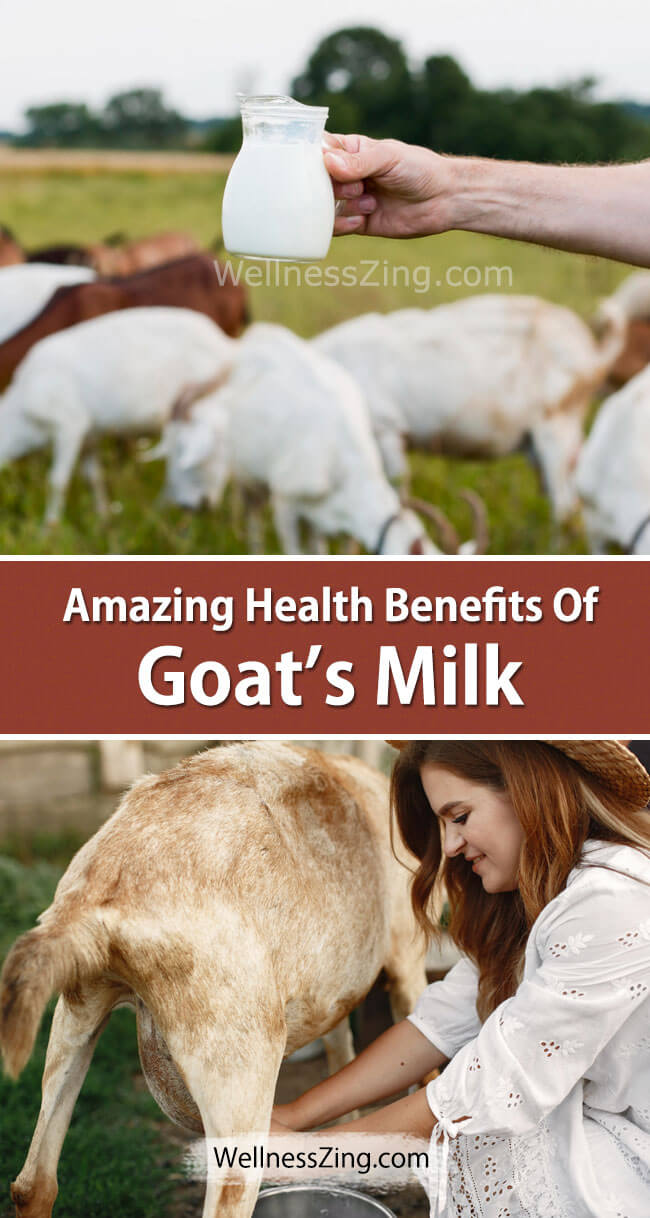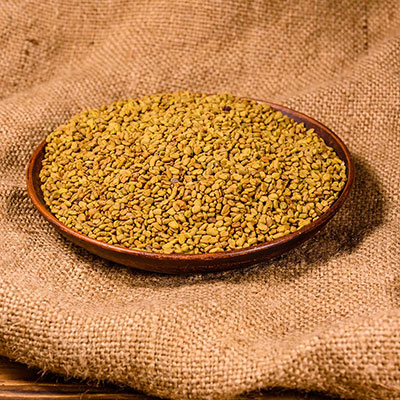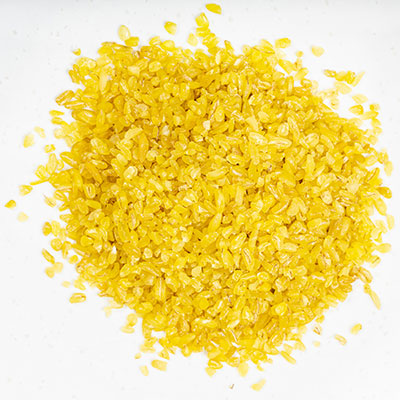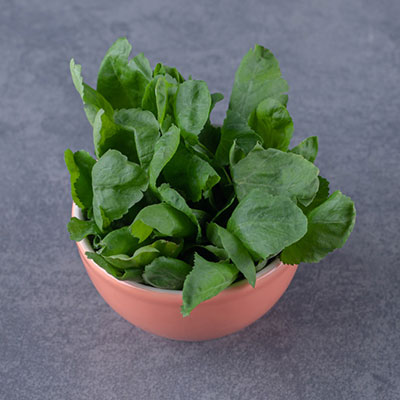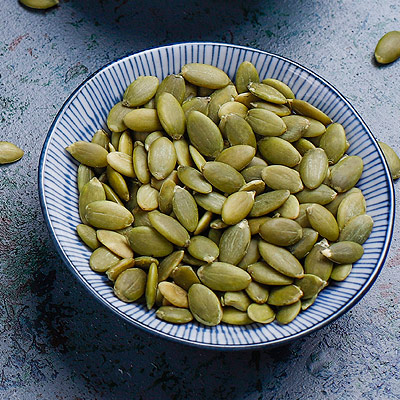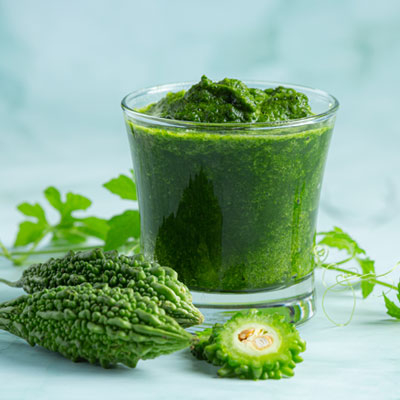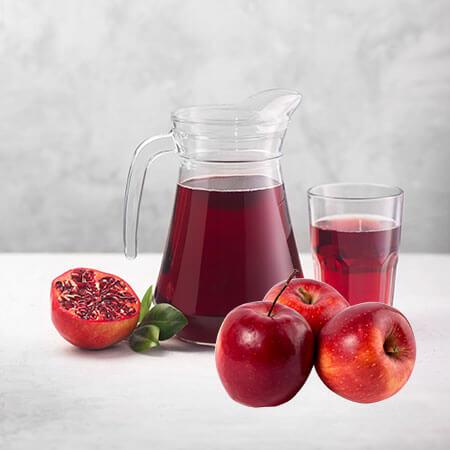Goat Milk is one of the most commonly found superfoods. It is considered as a healthier alternative for the more traditional cow milk. In its nutritional composition, it closely resembles cow milk, with certain unexpectedly amazing benefits for health, skin and hair.
Some fun facts about goat farming
- the global goat population is steadily increasing, one of the primary reasons for this increase is the growing popularity of goat’s milk.
- In 2017, it was estimated that the total global goat milk production was estimated to be 18.7 million tonnes.
- It is estimated that goat milk accounts for close to 2% of the world’s dairy production! This is because the yield of milk per goat is very less when compared to cattle.
Nutritional Components in Goat’s Milk
Goat milk is advocated by experts as a highly nutritious as well as healthy drink. Current research states that goat milk is very rich in Vitamin D, Calcium, Magnesium, and Vitamin A.
Therefore, we can safely assume that a daily diet of a cup of goat milk can lead to innumerable health benefits!
Goat milk is an especially good alternative for the emerging calorie-conscious population. Regular consumption of goat milk can easily be made part of your daily weight loss program. Studies indicate that 100 grams of goat milk contains only 70 kJ.
Many studies also state that goat milk constitutes 13% of Calcium content and 12% is Vitamin D of the daily nutritional requirement. In addition to these, goat milk can fulfil 3% Vitamin C and 3% is Vitamin A nutritional component of an individual’s daily diet.
Moreover, these studies have led researchers to state that 100 grams of goat milk can fulfil up to 7% of the daily protein and 6% of the daily fat dietary requirement.
In terms of macro-nutrients, research indicates the presence of minerals like Phosphorus, Sodium, and Cobalamin in goat milk. These can lead to various health benefits in the long run.
However, it should be noted that scientists also speculate that the total mineral content of goat’s milk varies due to factors like the breed of the goat, the geographical location of its rearing, its daily diet, the stage of lactation, and overall farming practices of the milk production facility.
Who is Goat milk recommended for?
Ideally speaking, goat’s milk is a healthy option for the daily dairy input for any an individual. However, there are certain people for whom sheep milk may be a recommended form of dairy intake:
- Those who suffer from bloating, flatulence, etc. from consuming cow milk
- Those who suffer from lactose intolerance
- Those who are macro-nutrient deficient
- Those who prefer to consume a low-calorie diet
- Those who prefer a high dose of the ‘good’ cholesterol in their system
People with the above conditions should try goat’s milk as an alternative food choice to improve their lifestyle quotient.
Common Goat Milk Products
1. Goat Milk as a drink
Goat milk is available in skim or low-fat, whole, and cultured products. These products differ depending on the method of processing of the goat milk. However, many people prefer to consume whole goat milk to derive maximum benefits from its natural composition.
2. Goat Milk Cheese
Goat cheese is called chèvre in French. This name refers to any cheese that is made entirely from goat milk. Since goat milk is known to be low in casein, which is a milk protein that produces the curdling effect in milk, it produces a cheese which has very small, soft curds that crumble easily.
When this goat cheese is young it tends to be soft, spreadable, and tangy. However, aged goat cheese can be chalky, crumbly, and earthy.
Goat cheese is said to have high levels of Vitamin A; this makes the goat cheese slightly whiter in colour. The high quantities of Vitamin E, Vitamin K, Vitamin B6, and Vitamin B3 give the goat cheese its distinctive flavour and smell.
3. Buttermilk
The buttermilk is the fluid left behind after the butter is churned from the milk. Goat cheese buttermilk is known to help in weight loss; this is due to the fact that all the milk fat has been removed in the form of butter. Buttermilk from goat milk is available in the market in many forms. There are innumerable benefits of buttermilk like:
- helps to boost the immune system
- reduces body heat
- cures related acidity issues
- helps to reduce blood pressure
- can be used as a remedy for treating indigestion as well as bloating
- can be used to improves digestion
4. Yoghurt
Goat milk is abundant in Vitamin B2 also known as riboflavin. This nutrient helps the body to gain and maintaining energy for extended periods. The density of B2 is very high in goat milk in comparison to cow milk, thus, eating a small quantity of goat yoghurt still ensures maintenance of the nutritional balance.
Moreover, the fat content is very low in yoghurt when compared with or even buffalo milk; this indicates that lower calorie intake with nutritional efficiency is possible with yoghurt.
5. Frozen Products
The distinctive taste of goat milk lends itself to its frozen products like ice-creams also. The goat milk ice-cream is an increasingly popular frozen dessert. The taste and texture of goat milk ensure that a new age and experimental flavours can be brought out by using goat milk. Currently, in Europe and other parts of the world goat milk ice-cream is used to bring out many artisan frozen desert.
Comparison of Goat Milk with Cow Milk
The majority of the world population prefers to consume cow or buffalo milk. However, there is a distinctive demand for goat milk in the Middle East as well as European nations.
Cow and Goat milk differ from each other in digestibility, alkalinity, buffering capacity, and therapeutic use in human nutrition. Goat milk is known to have smaller fat globules. Studies show that the distinct protein polymorphism along with lower as1-casein and higher as2-casein make goat milk more tolerable than cow milk to human. This means that goat milk shows better digestibility in comparison to cow milk.
Moreover, research shows that goat milk has more short-chain and medium-chain fatty acids which give it the special ability to provide more energy. This property of goat milk is most suitable for its consumption by growing children to help their increasing need for instant and long-term energy in their day to day active life.
Goat milk is typically known to contain slightly less lactose. Moreover, goat milk produces a softer curd during the digestion process. These properties of goat milk are beneficial those people who experience sensitivity to lactose in cow milk; they are able to enjoy goat milk without any adverse repercussions.
Some scientists have found that goat milk has more non-digestible carbohydrates than cow milk; furthermore, it is similar in amount and structure to those found in human milk. Thus, goat milk is easier to digest and is a good substitute for human milk.
Benefits of Goat Milk
1. Skin Benefits
Goat milk is a natural moisturizer due to the presence of Vitamin A. This Vitamin A also tends to soften the skin quality. Using a small amount as a pre-bath face wash tends to add brightness to the skin as its lactic acid can help your face get rid of dead skin layer that makes the skin dull in appearance. Regular use of goat milk as a face wash is also known to lighten the skin tone.
The natural and pure form of goat milk has a good pH balance that can help oily skin fight off pimples and acne. Thus, the direct application of goat milk to the facial region can result in smoother skin.
Goat milk as a face wash is also good for sensitive skin as it has a pH level that is similar to humans, thus it can be absorbed by the skin easily without causing any irritation.
2. Hair Benefits
The similar to human pH balance of goat milk helps it to ensure balanced scalp and dermal health. A light application of goat milk, like applying oil to the scalp, followed by a hair wash is an effective way to stimulate new hair growth as well as reduce dandruff and hair fall.
A repeated massage with goat milk induces an improved circulation in the scalp, this results in better hair and scalp health. The nutrient content of goat milk is easily absorbed by the scalp to improve the quality and texture of hair.
The antimicrobial property of the goat milk helps in reducing itchiness of the scalp as well as decreases the occurrence of dandruff in the scalp. Thus, application of goat milk promotes overall hair and scalp health.
3. Other Health Benefits
The high macro- and micro-nutrient content of goat milk makes it a good choice for health enthusiasts. The low-fat content of goat milk also helps it to become an intelligent choice for the weight and calorie conscience individual.
In addition to being an overall healthy choice for a drink, goat milk is a good choice to decrease allergic rhinitis. The allergic rhinitis is often triggered by milk allergy; however, since goat milk is easier to digest and is similar to human milk, it does not induce symptoms of allergic rhinitis.
Symptoms related to milk allergy; like anaphylactoid reaction, anaphylaxis, angioedema, coughing, dyspnea, oral pruritus, rhinoconjunctivitis, swelling of eyelids, urticaria, vomiting, watery eyes, and wheezing can be avoided by consuming goat milk. This is true due to the similarity of goat milk to human milk; thus, it does not invoke the same allergic reactions by human as cow milk.
Goat milk is also considered as a prebiotic drink for the gut. Goat milk maintains the health of the digestive tract and the gut microbial system by encouraging the growth of beneficial bacteria in the gut. This leads to cure and care for patients suffering from bloating, flatulence, poor digestion, etc.
The low-fat content of goat milk makes it an ideal candidate as a drink for those suffering from cholesterol and heart diseases. The easy and improved digestion by the stomach, the high nutrient content, and the low-fat content are some of the other health benefits that can be enjoyed by consuming goat milk.
Frequently Asked Questions About Goat Milk
Q1. Can people with dairy allergies consume goat milk?
Ans. Goat milk is low in lactose content and is similar to human milk when viewed in terms of content analysis. Moreover, research has found that people who show allergic reactions to cow milk find goat milk easier to consume. However, if you have severe dairy allergies it is always recommended to consult your medical practitioner before consuming any type of dairy product.
Q2. Can goat milk cause constipation?
Ans. No, goat milk does not cause constipation. The regular consumption of goat milk induces an increase in gut bacteria, this results in a healthy and consistent bowel movement. Consumption of goat milk also improves the overall gut health by curing flatulence, irritable bowel symptoms, etc.
Q3. Can goat milk cure allergies?
Ans. No, goat milk cannot cure allergies. Consumption of goat milk usually relieves symptoms that are caused by cow milk allergy. It also boosts the immune system of the body by providing a balanced diet, thus, it helps to build a resistance the various allergens that affect the body.
Conclusion
Goat milk has been scientifically proven to be easier to digest with the added benefits of being good for people with cholesterol issues, digestive problems, and nutrition deficiency. Additionally, goat milk is good when directly consumed for skin and hair health. Moreover, the direct application of goat milk on skin and scalp works as a moisturiser and has anti-bacterial properties that promote dermal health.
Goat milk and its products are a good choice for those individuals who wish to enjoy dairy products with added health benefits excluding all the side effects that are accompanied by the consumption of cow milk.
ain unexpectedly amazing benefits for health, skin and hair.

